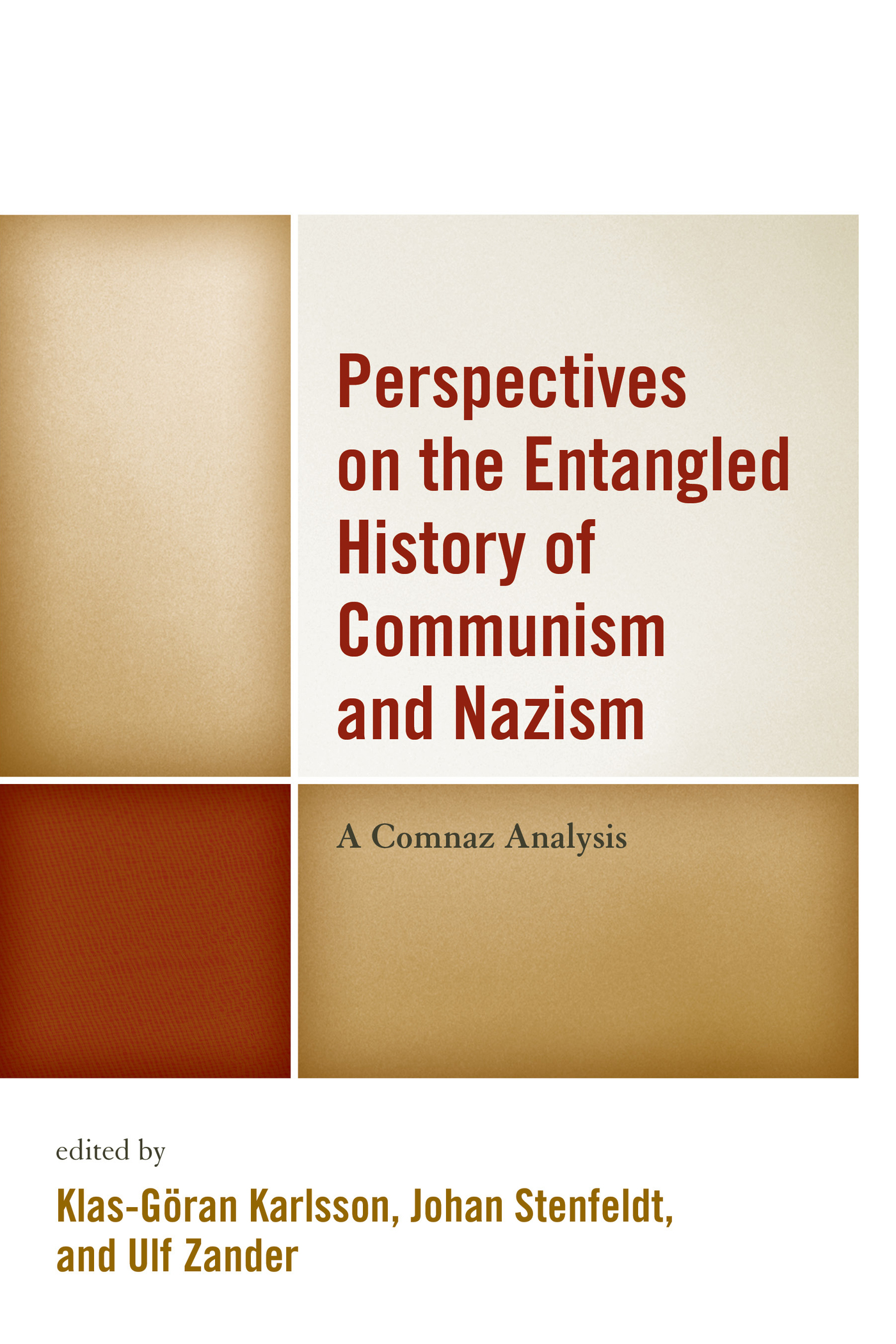Perspectives on the Entangled
History of Communism and Nazism
Perspectives on the Entangled
History of Communism and Nazism
A Comnaz Analysis
Edited by Klas-Gran Karlsson, Johan Stenfeldt, and Ulf Zander
LEXINGTON BOOKS
Lanham Boulder New York London
Published by Lexington Books
An imprint of The Rowman & Littlefield Publishing Group, Inc.
4501 Forbes Boulevard, Suite 200, Lanham, Maryland 20706
www.rowman.com
Unit A, Whitacre Mews, 26-34 Stannary Street, London SE11 4AB
Copyright 2015 by Lexington Books
All rights reserved. No part of this book may be reproduced in any form or by any electronic or mechanical means, including information storage and retrieval systems, without written permission from the publisher, except by a reviewer who may quote passages in a review.
British Library Cataloguing in Publication Information Available
Library of Congress Cataloging-in-Publication Data
Perspectives on the entangled history of communism and Nazism : a comnaz analysis / edited by Klas-G?ran Karlsson, Johan Stenfeldt, and Ulf Zander.
pages cm.
Includes bibliographical references and index.
1. Totalitarianism. 2. Communism. 3. National socialism. 4. Soviet Union--Politics and government--1936-1953. 5. Germany--Politics and government--1933-1945. I. Karlsson, Klas-G?ran, author editor of compilation. II. Stenfeldt, Johan, 1978- author editor of compilation. III. Zander, Ulf, author editor of compilation.
JC480.P475 2015
335.4309--dc23
2015015517
 TM The paper used in this publication meets the minimum requirements of American National Standard for Information Sciences Permanence of Paper for Printed Library Materials, ANSI/NISO Z39.48-1992.
TM The paper used in this publication meets the minimum requirements of American National Standard for Information Sciences Permanence of Paper for Printed Library Materials, ANSI/NISO Z39.48-1992.
Printed in the United States of America
Introduction
Klas-Gran Karlsson, Johan Stenfeldt, and Ulf Zander
This book is the result of a scholarly project on the entangled history of Communism and National Socialism. At the center of attraction is the problem if, why, and how the history of German National Socialism and Soviet Communism should, and could, be situated within one coherent historical narrative. Most of the contributions to the volume were presented at an international conference at Lund University in Sweden in late 2011. The title of the book, Comnaz, is a portmanteau word of the kind that we often associate with Soviet Communist prose. However, to our knowledge, it has never been used outside of this endeavor.
Several works on the Communism-National Socialism nexus have been published; held together by an ambition to link Communist and Nazi history. In recent years, quite a few volumes on the theme have been written, which indicates that the topic has a certain relevance in the twenty-first century. It goes without saying that the opening of former Soviet archives has provided scholars with new opportunities to level out the quantitative and qualitative differences between studies of Nazi and of Communist history, and to lay the basis of more balanced comparisons. Furthermore, internal changes in the scholarly world, such as an increased interest in historical comparisons, in transnational interconnections, and in aspects of civilization, may have added to the orientation toward intertwined historical trajectories.
Some of the earlier works belong to the tradition of totalitarianism, with its ambition to lay bare the patterns of totalitarian rule by chiseling out and classifying its crucial components and factors, such as ideology, bureaucracy, and coercion, and combining them in a systemic way. Structural similarities or even identities between the Communist and Nazi regimes oftenbut certainly not alwaysstood out as the most scholarlyand politicallyrelevant, while diversities and unique traits were considered less rewarding.
Another kind of book on the comnaz theme has been biographical, which means that Hitler and Stalin have been portrayed and their origins, lives, and deeds compared or in other ways related to each other. While ascertaining that the leaders played an extremely important role in totalitarian rule, politically as well as symbolically, the best scholars of this approach also use the biographies of the Fhrer and the Vozhd to dive deeper into the power mechanisms of Nazi and Communist societies. Another consideration, mentioned by Richard Overy, is that the character of the modern worlds tragedy of fate emerges most clearly from an individual perspective: To set Stalin and Hitler side by side is to join company with two of the historical giants of the modern age, whose dictatorships met head-to-head in the greatest and costliest of all armed conflicts.
A third, more recent and scholarly distanced type of often joint works on the same topic combines the structural and historical approaches by analyzing the Communist and Nazi movements in complex, thematic settings. Some superficial similarities or commonalities are recorded, but it is normally maintained that historically based differences and distinctions are of decisive scholarly importance. In general, the Sonderweg thesis of special paths and asymmetric developments is salient, although there is no Russian-Soviet equivalent to the extremely influential interpretation that Hitler owed his political success to Germanys uniquely unbalanced modernization. In relation to totalitarianism studies, these analyses have a clear revisionist character. In their co-authored work on the Communist and Nazi dictatorships in comparison, Ian Kershaw and Moshe Lewin already by way of introduction ask the crucial question: Why compare countries with such different history, geography, social structures, and levels of development as Germany and Russia (subsequently the Soviet Union)?
To these explicitly comparative or entangled works should be added a few scholarly analyses which have mainly been oriented towards Soviet Communist history, but where the implicit, preconceived notion of a twin evil obviously has called forth the company of a German Nazi history. For some, these books serve as a confirmation of an existing historical affinity between Communism and National Socialism, while for others, the same works rather arouse an interest to refute any accusations of kinship.
The latter observation is connected to the most recent scholarly approach, in which Communism and Nazism are interrelated in terms of their representations and interpretations in and by posterity. Experiences, memories, and other cultural expressions of Communism and Nazism, not least of their most abominable and repressive manifestations, symbolically often denoted as Gulag and Auschwitz, have recently attracted a widespread interest which certainly is not limited to the academic community. An important framework for this kind of interpretation is European; while Hitler, Nazism, and the Holocaust seem to have gained a position of prominence in the historical consciousness of Western Europe, as a kind of moral or political basis for a more sincere European integration, Stalin and his satellite equivalents, Communism, and Communist terror have a stronger hold on the minds of those living in the eastern parts of Europe. The same conflict can as adequately be expressed in an adverse way: while many leftist intellectuals, politicians, and others in the West often fall silent or even choose to actively rearrange or deny history when the misdeeds carried out in the name of Communism are addressed, many east Europeans find it painful to discuss the Holocaust, being aware that the genocide of the European Jews was not only the work of SS and Gestapo executioners, but also of various nationalist and anti-Semitic collaborators in their countries. In that respect, comnaz is certainly not only a scholarly but also a political entanglement of our time.
Next page
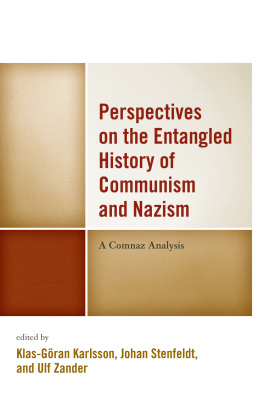
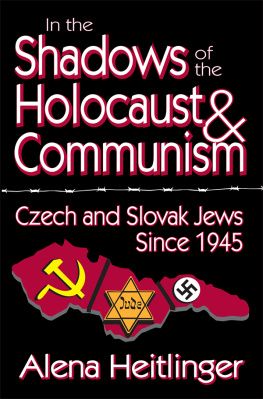
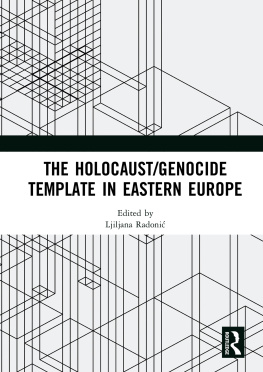


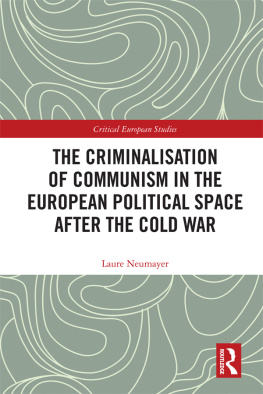
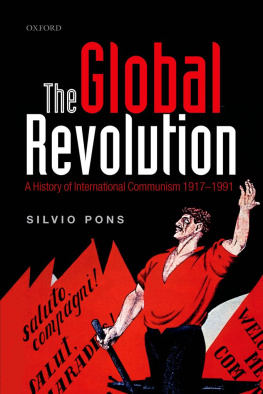

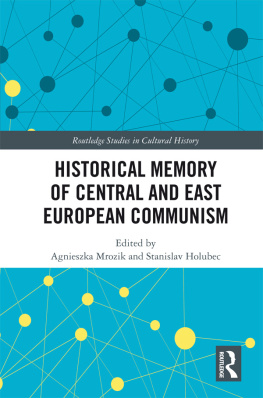
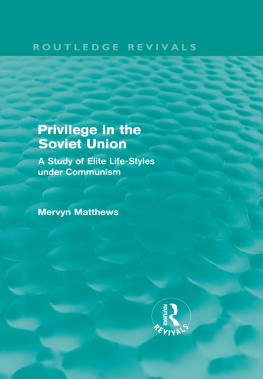
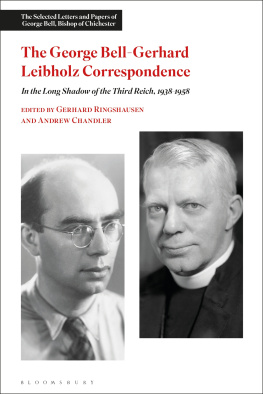
 TM The paper used in this publication meets the minimum requirements of American National Standard for Information Sciences Permanence of Paper for Printed Library Materials, ANSI/NISO Z39.48-1992.
TM The paper used in this publication meets the minimum requirements of American National Standard for Information Sciences Permanence of Paper for Printed Library Materials, ANSI/NISO Z39.48-1992.